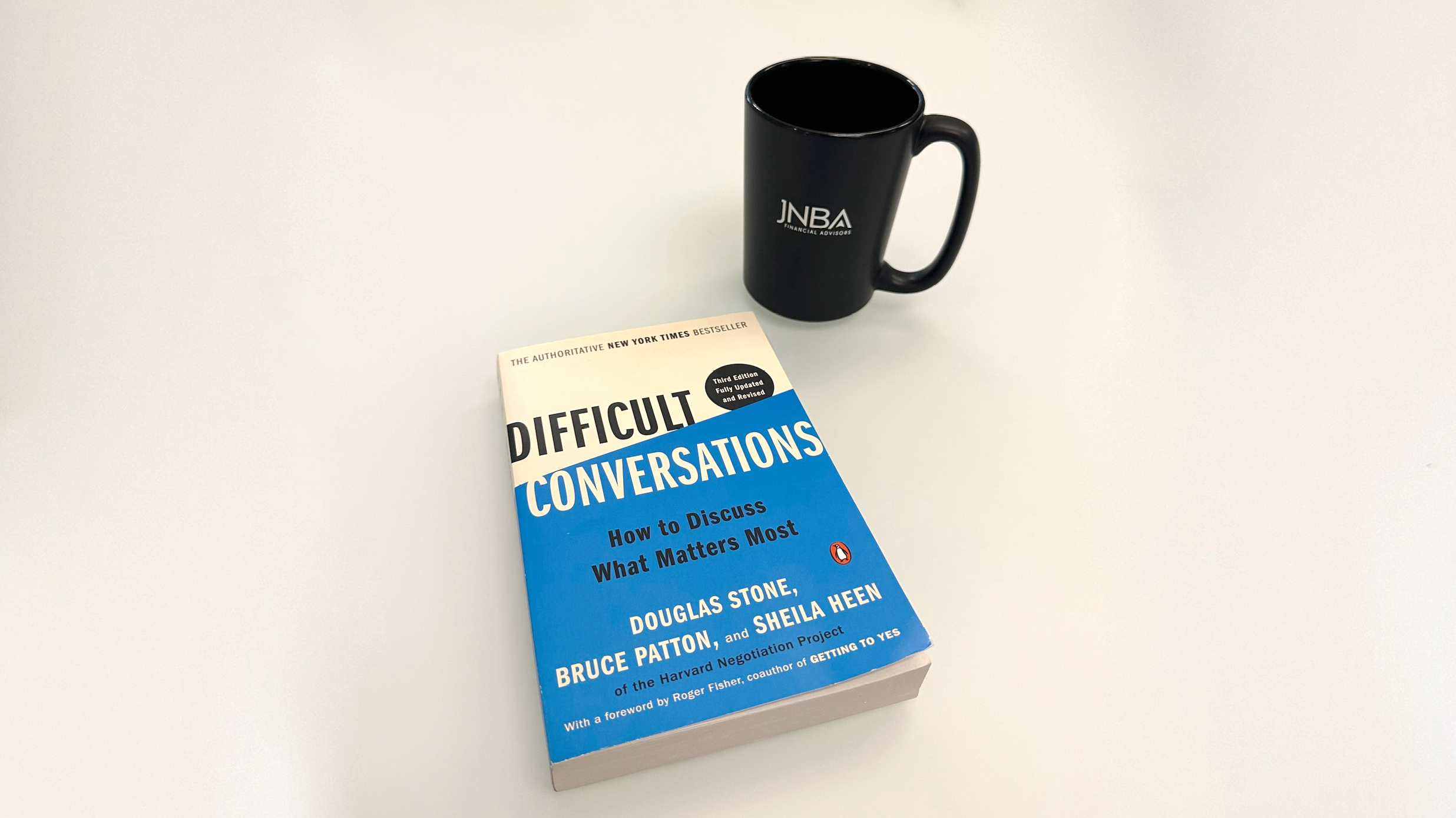Having tough conversations is a part of life. No matter how great you may be at communicating, there are times when the emotional stakes run high, and we can be anxious about the outcome of a discussion. Based on almost thirty years of research, the best-selling book Difficult Conversations: How to Discuss What Matters Most by Douglas Stone, Bruce Patton, and Sheila Heen addresses the underlying dynamics of these discussions. Originally published in 1999, JNBA Advisors and Advisor Associates read and discussed this timeless text and summarized key takeaways to help you feel more confident and calm about navigating difficult conversations that arise in your life.
STORY TRUTH AND REALITY
Everyone’s perceptions are different. We tell ourselves a story about who we are and how we interact with the world, based on our individual experiences. At times, difficult conversations can arise at the same moment when important parts of our personal experience or perception collide with those of the other person’s experience or perception. It’s important not only to understand your story and how that is impacting your perspective on the conversation, but also to attempt to hear the other person’s story as well. Difficult conversations can be better facilitated if you understand how someone has reached a different conclusion than you.
LISTEN FIRST
Oftentimes when conversing with someone, we can become so focused on what we want to convey that we forget to be a listener first. In a conflict situation, simply listening can bring a great deal of understanding. The book offers the phrase “Seek first to understand, then to be understood” as a reminder of this key component of good communication.
DON’T ASSUME
When emotions are high during difficult conversations, you may find yourself making assumptions about the meaning behind someone’s behaviors or words. As your brain fills in the blanks, it may be right or it may be wrong. Either way, you could develop feelings about this conclusion. It’s safer not to make assumptions. Instead, ask questions to clarify, building connection and understanding.
AVOID BLAME
It is natural when facing a conflict to focus on who is to blame for the problem. By focusing on blame, we miss the opportunity to learn what truly caused the issue and what might help alleviate the situation in the future. Instead, seek to understand contributions from both parties to identify solutions or better results for the future.
PERSONAL REFLECTION
Part of what makes a difficult conversation challenging is the risk or fear that the conversation will challenge our identity or how we see ourselves. Taking time for personal reflection and accepting that you will make mistakes, your intentions are complex, and you have contributed to the problem in some way can lead to great growth as a communicator. This foundation will serve you well in building confidence and reducing anxiety when approaching a difficult conversation.
Want to learn more about how to handle difficult conversations? We address the topic on an episode of our podcast, Navigating Life Transitions, featuring host Kim Insley and guests Richard S. Brown, JNBA Chairman and CEO, and Elise Huston, JNBA Senior Advisor. Click here to listen.
Additionally, feel free to talk to your JNBA Advisory Team about how a financial advisor can help you navigate difficult conversations.
Due to various factors, including changing market conditions and/or applicable laws, some of the content may no longer be reflective of current opinions or positions. Moreover, you should not assume that any discussion or information contained in this blog serves as the receipt of, or as a substitute for, personalized investment advice from JNBA Financial Advisors.
Please see important disclosure information at jnba.com/disclosure






